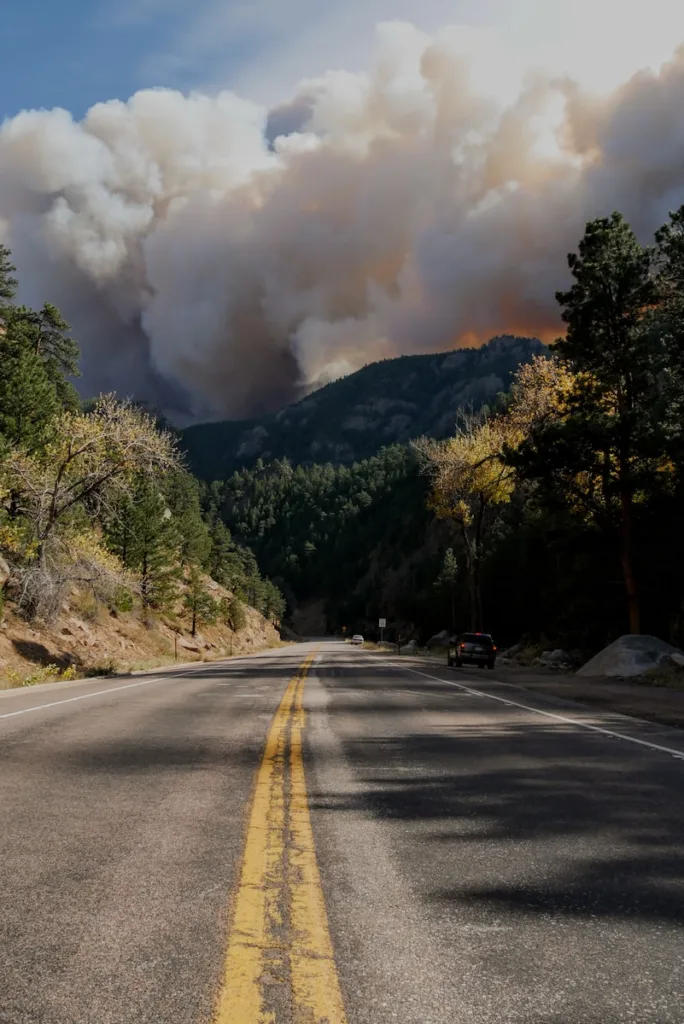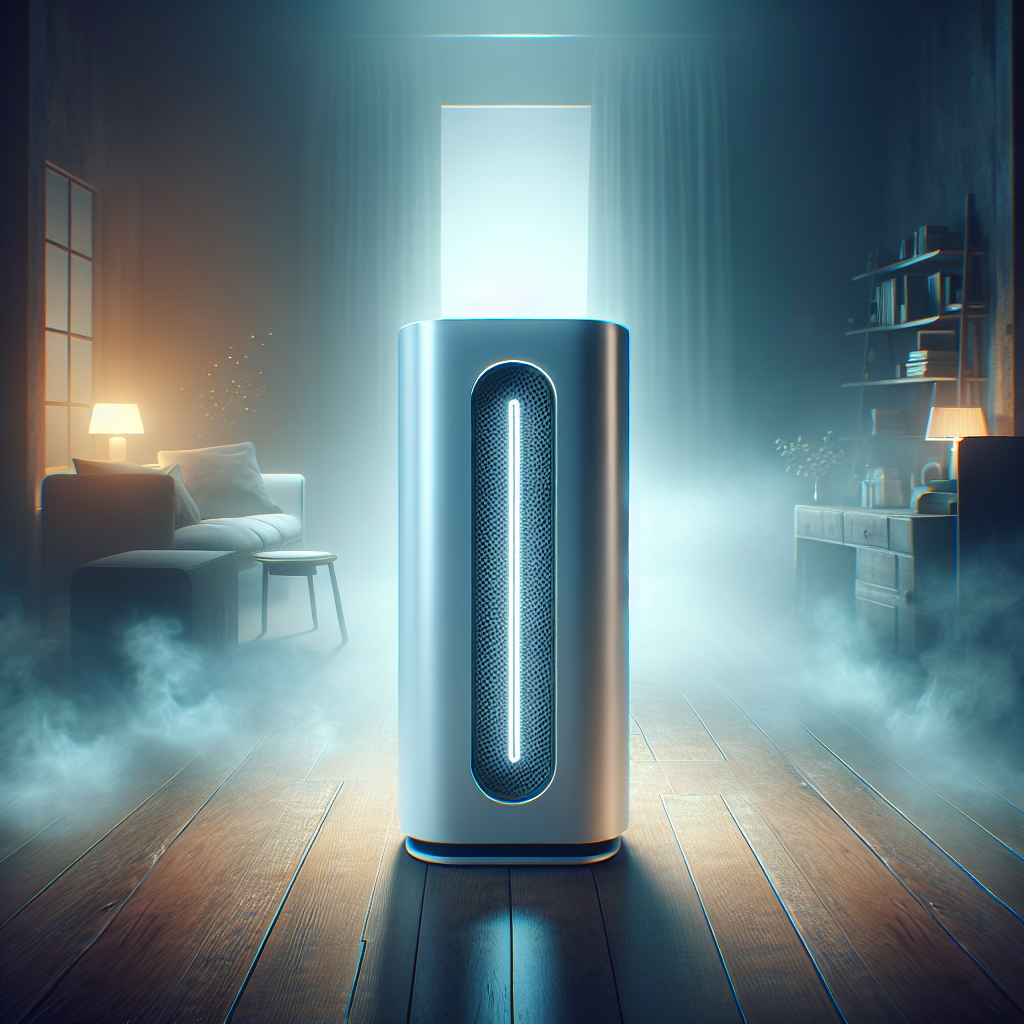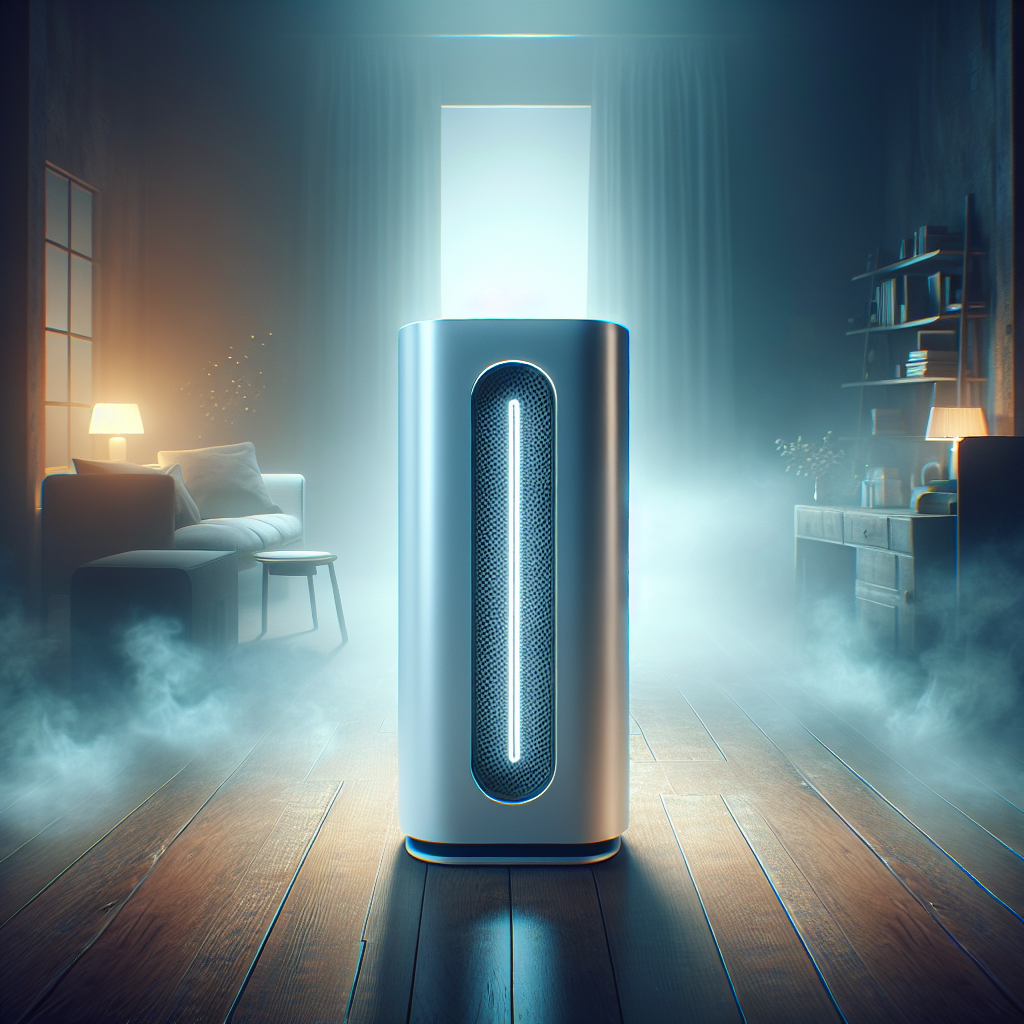Did you know that air purifiers can make a significant difference in improving indoor air quality during wildfires? With the increasing occurrence and intensity of wildfires in recent years, it’s crucial to explore effective methods of protecting ourselves and our loved ones from the harmful pollutants that can infiltrate our homes. In this article, we will discuss the potential benefits of using air purifiers as a solution to combat the adverse effects of wildfire smoke and pollutants. By the end, you’ll have a clear understanding of how air purifiers can help create a safe and healthy environment indoors, even during the most challenging times.
Understanding Indoor Air Quality during Wildfires
Wildfires can have a significant impact on indoor air quality, creating a range of health risks for individuals. Understanding the factors that affect indoor air quality during wildfires is crucial for protecting yourself and your loved ones.
Factors Affecting Indoor Air Quality during Wildfires
During wildfires, the smoke contains numerous pollutants, including particulate matter, volatile organic compounds (VOCs), and toxic gases. These pollutants can penetrate indoor spaces and deteriorate indoor air quality. Factors that affect the level of indoor air pollution include the proximity to the wildfire, the intensity and duration of the fire, and the effectiveness of preventive measures such as sealing windows and doors.
Health Risks of Poor Indoor Air Quality during Wildfires
Breathing in smoke from wildfires can lead to various health issues, particularly for individuals with respiratory conditions, the elderly, and young children. The particulate matter in wildfire smoke can irritate the respiratory system, causing symptoms such as coughing, wheezing, and shortness of breath. Prolonged exposure to poor indoor air quality during wildfires may also increase the risk of developing respiratory infections, cardiovascular problems, and other serious health complications.
The Role of Air Purifiers in Improving Indoor Air Quality
Air purifiers can play a vital role in improving indoor air quality during wildfires. These devices are designed to remove pollutants and particles from the air, helping to create a healthier indoor environment for you and your family.
How Air Purifiers Work
Air purifiers utilize a combination of filtration methods to clean the air. Most air purifiers have a pre-filter to capture larger particles, such as dust and pet dander. The main filtration component is usually a High-Efficiency Particulate Air (HEPA) filter, which can trap tiny airborne particles, including smoke particles from wildfires. Some air purifiers also feature activated carbon filters to remove odors and VOCs.
Types of Air Purifiers
There are several types of air purifiers available, each with its specific advantages. Some common types include HEPA air purifiers, activated carbon air purifiers, ionizers, and ozone generators. Each type has its unique filtration capabilities and is suitable for different scenarios. It is essential to understand the features and limitations of each type to choose the most appropriate one for your needs.
Effectiveness of Air Purifiers in Wildfire Smoke Filtration
Air purifiers with HEPA filters are considered highly effective in filtering out smoke particles from the air. These filters can capture at least 99.97% of particles as small as 0.3 microns. However, it is important to note that air purifiers cannot completely eliminate all pollutants, especially the gases emitted by wildfires. Nevertheless, using air purifiers can still significantly reduce the levels of harmful particles in indoor air and provide relief to individuals with respiratory conditions.

Choosing the Right Air Purifier during Wildfires
When selecting an air purifier for use during wildfires, it is essential to consider several factors to ensure optimal performance and effectiveness.
Considerations for Selecting an Air Purifier
Consider the size of the room or area you intend to purify. Air purifiers have different coverage capacities, and choosing one with a suitable capacity is crucial for efficient air cleaning. Additionally, consider the specific pollutants you want to target, such as smoke particles, VOCs, or odors. Different air purifiers are designed to excel in different areas, so selecting the one that matches your needs is important.
Key Features to Look for in an Air Purifier
Look for air purifiers with a HEPA filter, as these are highly efficient at removing smoke particles. Additionally, consider additional features such as activated carbon filters for odor and VOC removal, adjustable fan speeds to customize the air cleaning process, and noise levels that are acceptable for your living environment. Some air purifiers also offer smart features, such as Wi-Fi connectivity or a timer function, adding convenience to your indoor air purification routine.
Best Practices for Using Air Purifiers during Wildfires
To maximize the effectiveness of air purifiers during wildfires, it is important to follow best practices for placement, maintenance, and supplementary measures.
Placement of Air Purifiers
Place the air purifier in the room where you spend the most time, such as the living room or bedroom. Ensure that there is sufficient space around the device for proper air circulation. Avoid placing the purifier near sources of pollution, such as smoking areas or kitchen stoves. For multi-story homes, consider using additional air purifiers on each floor to maintain clean air throughout the entire space.
Maintenance and Filter Replacement
Regular maintenance is crucial to ensure optimal performance of the air purifier. Follow the manufacturer’s instructions regarding filter replacement, as filters become less effective over time. Some air purifiers have filter replacement indicators, which can help you stay on top of maintenance tasks. Additionally, clean the external surfaces of the purifier regularly to prevent the buildup of dust and other contaminants.
Supplemental Measures for Further Indoor Air Quality Improvement
While air purifiers can significantly improve indoor air quality during wildfires, it is important to complement their use with other preventive measures. Seal gaps around windows and doors to minimize the infiltration of outdoor smoke. Use high-quality furnace filters in your HVAC system and consider upgrading to a HEPA filter if possible. Limit outdoor activities when the air quality is poor, and keep windows closed to prevent smoke from entering your home.

Air Purifiers vs Other Indoor Air Quality Solutions
Air purifiers are not the only solution for improving indoor air quality during wildfires. Other options, such as HVAC systems, can also contribute to clean indoor air.
Comparison with HVAC Systems
HVAC systems can help circulate and filter the air in your home. However, standard HVAC filters may not be as effective as HEPA filters in capturing small smoke particles. Adding a HEPA filter to your HVAC system can enhance its air cleaning capabilities. It is also important to ensure that your HVAC system is well-maintained and free from leaks that could compromise its efficiency.
Combining Air Purifiers with Other Strategies
Using air purifiers in conjunction with other strategies can provide comprehensive indoor air quality improvement. Employing measures like sealing windows and doors, upgrading furnace filters, and minimizing outdoor activities can all contribute to reducing the levels of smoke particles and pollutants in your indoor environment.
Case Studies: Air Purifier Effectiveness during Wildfires
Numerous research studies and real-life experiences have explored the efficacy of air purifiers in mitigating indoor air quality issues during wildfires.
Research Studies on Air Purifier Efficacy
Several research studies have demonstrated the effectiveness of air purifiers in reducing indoor air pollution during wildfires. These studies have shown significant reductions in particulate matter levels and improvements in air quality metrics when air purifiers are used. However, it is important to note that individual results may vary depending on factors such as the size of the room, proximity to the fire, and the specific air purifier model used.
Real-Life Experiences and Testimonials
Many individuals and families have shared their experiences and testimonials regarding the benefits of using air purifiers during wildfires. These firsthand accounts often highlight the relief and peace of mind that come with having cleaner indoor air amidst the smoky conditions. These stories provide valuable insights into the practical effectiveness of air purifiers in improving indoor air quality during wildfires.
Potential Limitations and Risks of Air Purifiers
While air purifiers can be highly effective in improving indoor air quality during wildfires, there are some limitations and risks to be aware of.
Possible Limitations of Air Purifiers for Wildfire Smoke
Air purifiers may not be able to remove all harmful gases emitted by wildfires, such as carbon monoxide. These devices primarily focus on filtering particles, so it is important to have other preventive measures in place, such as properly ventilating your home and avoiding exposure to outdoor smoke as much as possible.
Health Risks of Air Purifiers
In rare cases, air purifiers can emit ozone, which may have adverse health effects when present at high levels. However, modern air purifiers are designed to produce minimal ozone, well below the safety limits set by regulatory agencies. It is essential to choose air purifiers from reputable manufacturers and to read product specifications to ensure compliance with safety standards.
Additional Considerations for Individuals with Specific Needs
Individuals with certain health conditions, such as asthma or allergies, may have specific requirements when it comes to air purifiers. Consulting with a healthcare professional or an indoor air quality specialist can help determine the most suitable air purifier for individuals with specific needs.
Conclusion
When faced with wildfires and their associated indoor air quality issues, air purifiers can be valuable tools for creating a healthier indoor environment. By understanding the factors affecting indoor air quality during wildfires and choosing the right air purifier for your needs, you can significantly reduce exposure to harmful pollutants and protect the well-being of yourself and your loved ones.
The Value of Air Purifiers in Mitigating Indoor Air Quality Issues during Wildfires
Air purifiers provide an effective means of reducing indoor air pollution during wildfires. Their ability to remove smoke particles and other pollutants can greatly improve the air quality inside your home, minimizing health risks and providing relief to those with respiratory conditions.
Final Thoughts and Recommendations
Incorporating air purifiers into your indoor air quality strategy during wildfires can be a wise decision. However, it is important to remember that air purifiers alone are not a complete solution. By combining the use of air purifiers with other preventive measures and staying informed about air quality conditions, you can create a safer and healthier environment for yourself and your loved ones during wildfire events.
Breathe easy with another great read…
Can Air Purifiers Eliminate Cooking Odors?


